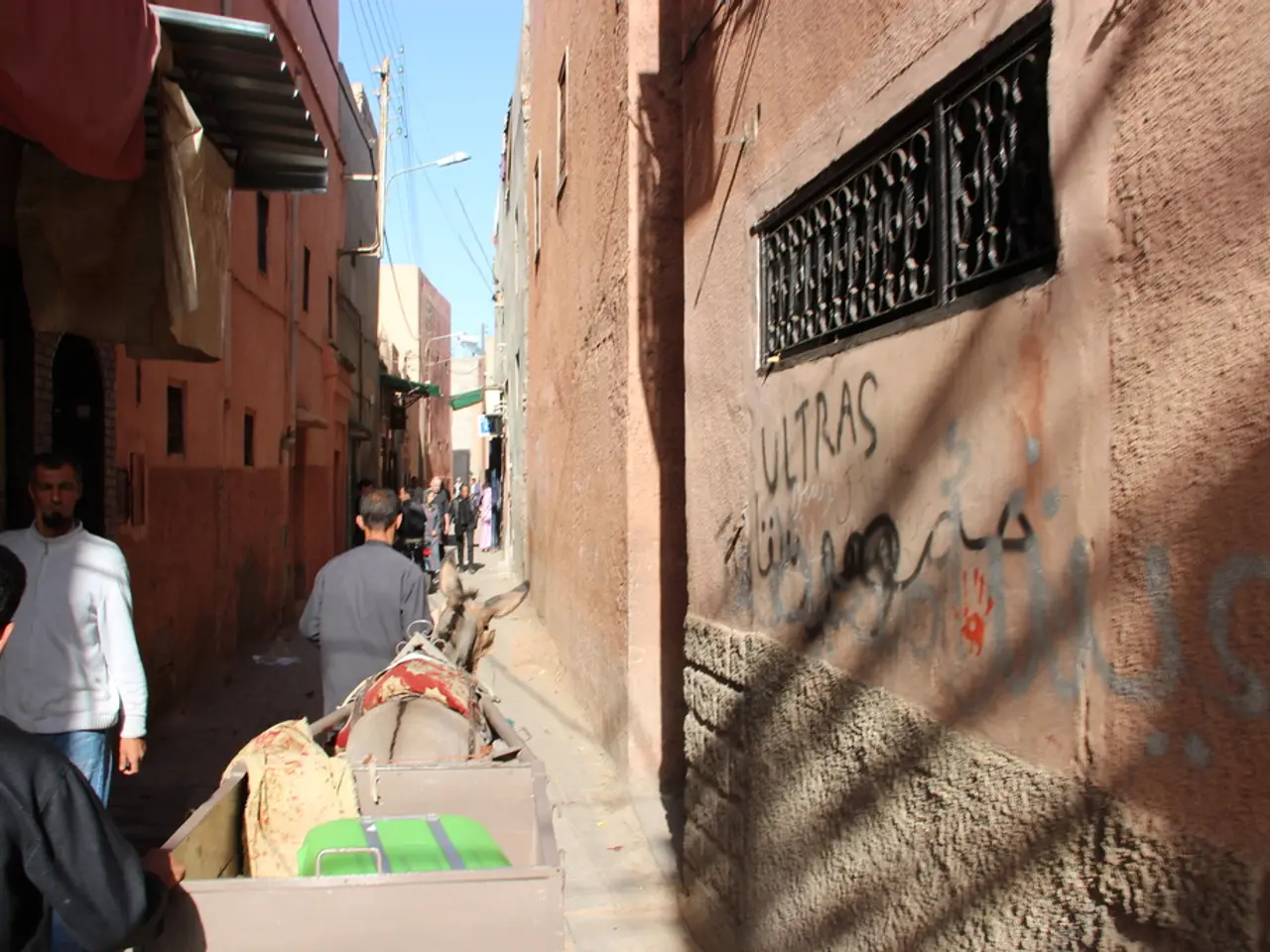Criticism from various countries regarding Israel's Gaza strategies
Israel's decision to seize Gaza City has sparked widespread criticism from the international community, with key actors expressing concern over potential humanitarian consequences and violations of international law.
The UN Security Council has convened to discuss the matter, with several ambassadors condemning Israel's military intentions. The UN's Office for the Coordination of Humanitarian Affairs (OCHA) has warned that the plan could cause a "further human toll," including increased starvation and civilian casualties, especially among children.
Arab nations, including Saudi Arabia, Egypt, and Turkey, have strongly denounced the move as a "dangerous escalation" and a "blatant breach of international law." They argue that Israel's initiative is an attempt to entrench its occupation and is a violation of international legitimacy.
European allies and key regional mediators have also expressed alarm. Diplomacy aimed at achieving a ceasefire and hostage release has reportedly stalled amid military escalations. This halt in talks signals a worrying deterioration in prospects for a peaceful resolution.
Locally, the power vacuum left by Hamas’ retreat and the absence of the Palestinian Authority has led to competition among tribal militias and foreign-backed groups attempting to assume control. Critics fear this could exacerbate instability rather than bring governance or peace. Israel has been accused of exploiting these factions to dismantle Hamas’ rule without offering viable political alternatives for Gaza’s future.
Potential consequences of the planned seizure of Gaza City include large-scale civilian displacement, increased humanitarian crisis, deepening political fragmentation and insecurity, erosion of international law norms, and stalled diplomatic efforts toward ceasefire or hostage negotiations.
In response, the EU Commission President Ursula von der Leyen and EU Council President António Costa have called on the Israeli government to reconsider its decision. Chancellor Friedrich Merz (CDU) has halted arms exports to Israel for the time being. The Government of the United Arab Emirates has called for de-escalating measures and warned against the spread of violence, tensions, and insecurity throughout the region.
Qatar, as an important mediator, has undermined efforts to achieve a lasting ceasefire with its condemnation of Israel's plans. Qatar's Ministry of Foreign Affairs considers the planned offensive a dangerous escalation and a threat to the humanitarian crisis in the Gaza Strip.
Dutch Foreign Minister Caspar Veldkamp stated that Netanyahu's government is losing Europe's support. Germany, Britain, Italy, New Zealand, and Australia have rejected Israel's plans to seize the city of Gaza.
However, it is important to note that the United Arab Emirates has not made a decision to sept the city of Gaza, and the Islamic Hamas has not been reported to have released the hostages as demanded by the partners.
The international community, led by the UN Security Council, Arab states, and mediators, overwhelmingly views the planned seizure of Gaza City as a dangerous escalation likely to worsen humanitarian conditions, destabilize the region, and undermine prospects for peace, while Israel proceeds with its military campaign amid stalled diplomacy. A two-state solution is considered the only way to achieve lasting peace between Israelis and Palestinians, according to a joint statement.
The UN Security Council, Arab states, European allies, and regional mediators are discussing and condemning Israel's military intentions towards Gaza City, fearing potential war-and-conflicts and violations of politics and general-news, including large-scale civilian displacement, humanitarian crisis, political fragmentation, and erosion of international law. The international community is urging Israel to reconsider its decision and seek a diplomatic resolution.








